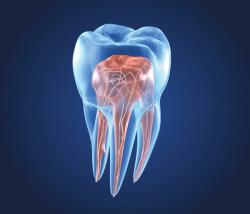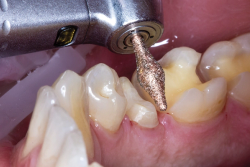- About Us
- Advertise
- Editorial
- Contact Us
- Terms and Conditions
- Privacy Policy
- Do Not Sell My Personal Information
© 2025 MJH Life Sciences™ and Dental Products Report. All rights reserved.
Train Your Dental Staff to Recognize Cybersecurity Concerns
These tips will help you mitigate risks and avoid phishing and malware problems in your practice.
As dental offices increasingly rely on technology to manage patient records, process payments, and communicate with patients, the risk of cyberattacks such as phishing and malware also increases. These attacks can result in compromised patient data, financial loss, and reputational damage. To mitigate these risks, dental offices must prioritize cybersecurity training for their staff. Here are some tips on how to train your office staff to avoid phishing and malware.
First and foremost, it is essential to educate staff on what phishing and malware are and how to identify them. Phishing involves the use of deceptive emails or messages to trick users into clicking on a link or opening an attachment that contains malicious software. Malware refers to any software designed to cause harm to a computer system, such as viruses, spyware, and ransomware. By understanding the tactics used by cybercriminals, dental office staff can become more vigilant and better equipped to identify and avoid these threats.
One effective way to train staff is with simulated phishing attacks. These tests involve sending staff simulated phishing emails that mimic real-world attacks. By monitoring staff responses and providing feedback, dental offices can identify areas of weakness and tailor their training accordingly. It is important to stress that these tests are not designed to call out staff or penalize them but rather improve overall awareness and response.
In addition to simulated phishing attacks, dental offices should provide regular training sessions on cybersecurity best practices. These could include topics such as creating strong passwords, identifying and avoiding suspicious emails, and keeping software up-to-date. It is also important to cover the risks associated with social engineering, where cybercriminals use psychological manipulation to trick staff into divulging sensitive information. By providing regular training sessions, dental office staff will be more likely to stay up-to-date with the latest threats and be better equipped to protect against them.
Another important aspect of cybersecurity training is establishing clear policies and procedures for staff to follow. These could include guidelines on the use of personal devices, social media rules, access controls for sensitive information, and protocols for responding to suspected security breaches. By setting clear expectations and providing staff with the tools they need to follow them, dental offices can create a culture of cybersecurity awareness and responsibility.
It is important to recognize that cybersecurity is not a one-time event but an ongoing process. Dental offices should conduct regular risk assessments to identify areas of vulnerability and take appropriate measures to mitigate them. These could include implementing additional security measures such as firewalls and antivirus software, conducting regular backups of patient data, and monitoring network activity for signs of suspicious behavior. HIPAA requires these regular risk assessments.
Finally, dental offices should foster a culture of open communication and transparency. Staff should be encouraged to report any suspected security incidents or concerns without fear of retaliation. By creating a supportive environment where staff feel empowered to speak up, dental offices can more quickly identify and respond to potential threats.

 Download Issue: Dental Products Report April 2023
Download Issue: Dental Products Report April 2023

